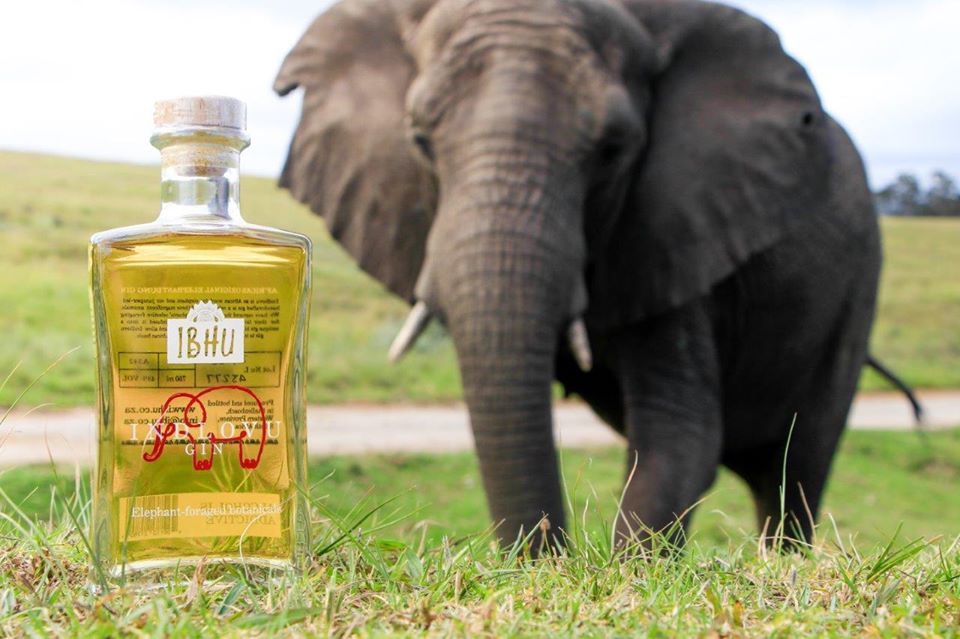There’s a Gin from South Africa that is infused with elephant dung, and, according to its creators, it’s not some marketing gimmick.
Les and Paula Ansley, the creators of dung-infused Indlovu Gin, came up with the idea last year after learning that elephants eat a variety of fruits and flowers and yet digest less than a third of it. “As a consequence, in the elephant dung, you get the most amazing variety of these botanicals,” Les Ansley said during a recent visit to their operations. “Why don’t we let the elephants do the hard work of collecting all these botanicals and we will make gin from it?” he recalled his wife suggesting.
Paula is the one who came up with the idea, weeks after returning from a safari. Apparently, she woke up Les in the middle of the night to reveal her idea, and thus the process began.
Les and Paula are both scientists, so they went about the process of making the Gin themselves. They ordered their first batch of elephant dung by mail from the park that inspired the idea, but have been collecting their star ingredient by hand ever since.
According to the couple, the Gin’s flavor is “lovely, wooded, almost spicy, earthy.” The Gin bottles are marked with the date and coordinates of where the elephant dung was collected. “So, you’re able to compare almost different vintages of the gin,” Ansley said, who also noted that the flavors change slightly with the seasons and location.
The process involves about five large bags of elephant dung that are collected to make a batch of 3,000 to 4,000 bottles of Gin. The droppings are dried and crumbled, then washed to remove dirt and sand, and, eventually, only the remains of the fruits, flowers, leaves and bark eaten by the elephants are left behind. Those botanicals are then sterilized and dried again and placed in an airing cupboard. Think of it like a “spice cupboard,” Ansley said. Finally, the remains are infused in the gin.
According to the Ansleys, “The initial reaction of most people is, ‘What? There’s no way.’ But most people are very keen to actually taste it.” Adding that once people hear about the elephant’s digestive process, “it becomes a lot clearer to them, and they accept it very well.”
The couple dubbed the Gin Indlovu, which means elephant in the Zulu language, and it’s currently going for about 500 rand ($32).


